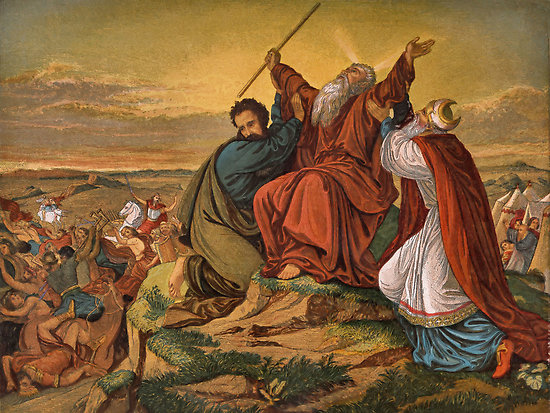Blog
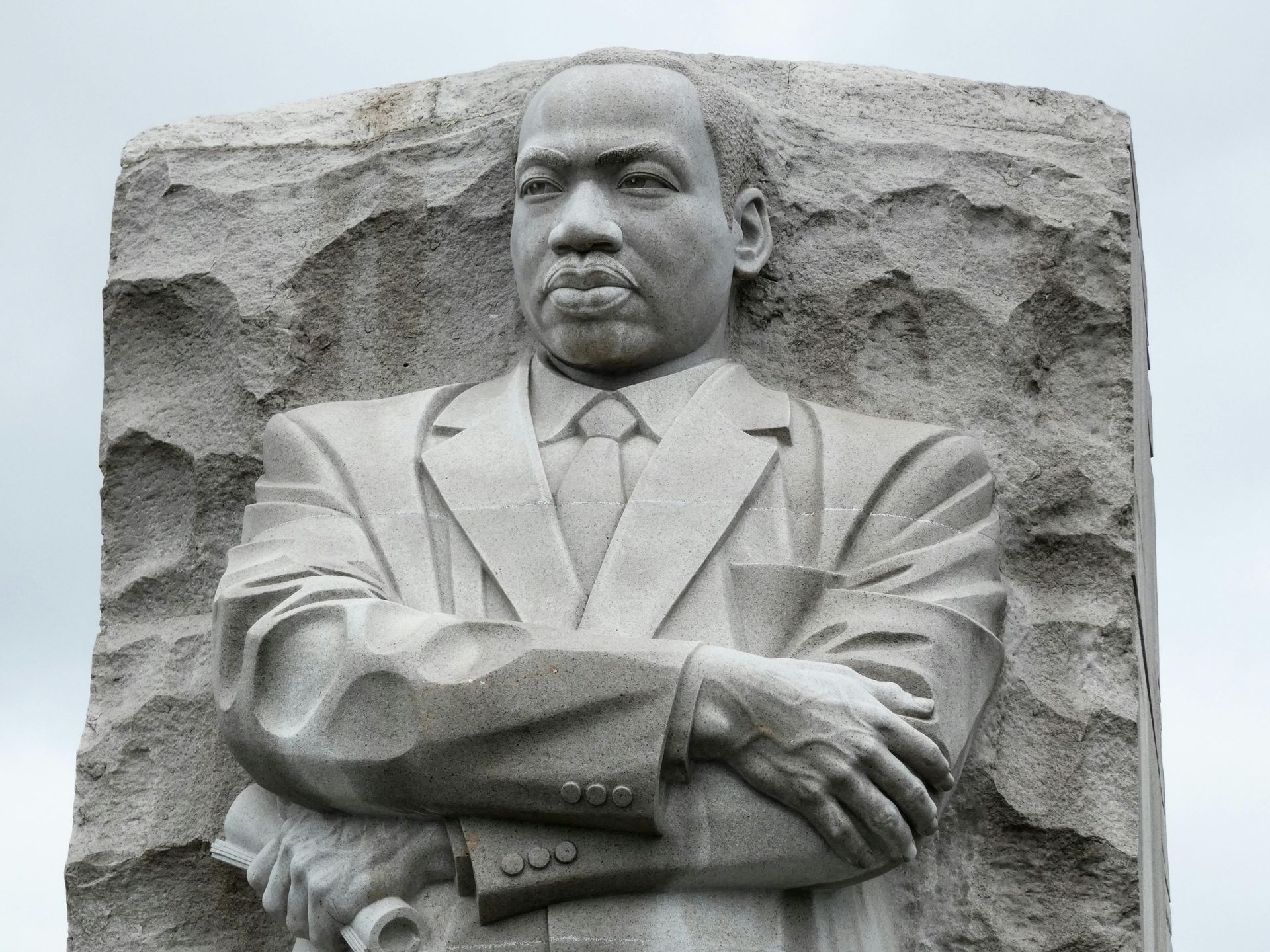
Now that we are beyond the Christmas season, we are returning to normal. In our first reading, Isaiah reminds us that we are servants. In this new year of grace, we are called to be servants. We are learning about humility; being humble means thinking less of myself and more of others. Is this what it means to be a servant? We hear the words of Isaiah as we begin the annual week of Christian unity. It is wonderful that men and women from different denominations can come together in prayer. This afternoon many will gather to remember the life and witness of Dr. Martin Luther King, Jr. Dr. King was a true servant to the mission of justice for all God’s people. Dr. King was a Christian who acted as a servant to the kingdom of God. Dr. King was a dreamer who shared his dream with the world. I have a dream that my four little children will one day live in a nation where they will not be judged by the color of their skin but by the content of their character. I have a dream . . . I have a dream that one day in Alabama, with its vicious racists, with its governor having his lips dripping with the words of interposition and nullification, one day right there in Alabama little black boys and black girls will be able to join hands with little white boys and white girls as sisters and brothers. I have a dream today . . . This will be the day when all of God’s children will be able to sing with new meaning. “My country, ’tis of thee, sweet land of liberty, of thee I sing. Land where my fathers died, land of the pilgrim’s pride, from every mountain side, let freedom ring.” And if America is to be a great nation, this must become true. So let freedom ring from the prodigious hilltops of New Hampshire. Let freedom ring from the mighty mountains of New York. Let freedom ring from the heightening Alleghenies of Pennsylvania. Let freedom ring from the snowcapped Rockies of Colorado. Let freedom ring from the curvaceous slopes of California. Being a servant of the gospel means being a dreamer who works to make the dream a reality. With our brothers and sisters of many faiths, we are servants of the kingdom of God. Like John the Baptist, we prepare the way for the coming of God’s kingdom. Each one of us, have been baptized and received the gift of the Holy Spirit. With the spirit to help us we are servants of the kingdom of God.

From Pope Leo’s Christmas homily: “For millennia, across the earth, peoples have gazed up at the sky, giving names to the silent stars, and seeing images therein. In their imaginative yearning, they tried to read the future in the heavens, seeking on high for a truth that was absent below amidst their homes. Yet, as if grasping in the dark, they remained lost, confounded by their own oracles. On this night, however, “the people who walked in darkness have seen a great light; those who dwelt in a land of deep darkness, on them has light shined” (Isaiah 9:2). Behold the star that astonishes the world, a spark newly lit and blazing with life: “To you is born this day in the city of David a Savior, who is the Messiah, the Lord” (Luke 2:11). Into time and space — in our midst — comes the One without whom we would not exist. He who gives his life for us lives among us, illuminating the night with his light of salvation. There is no darkness that this star does not illumine, for by its light all humanity beholds the dawn of a new and eternal life.” Stars are what this season of Christmas is all about. We look at the night sky and see the stars that remind us of the nativity of our Lord. At night God comes to speak to us in dreams. Sometimes the dreams tell what to do as they did for Joseph and the Magi. The star in today’s celebration is a star that points out the birth of the Christ child. Each child is born with a divine spark. Each human person has the dignity of being a child of God. I am reminded of the words of Leonard Bernstein. He calls his poem Greeting : “When a boy is born, the world is born again and takes its first breath with him. When a girl is born the world stops turning round and keeps a moment hushed wonder. Every time a child is born, for the space of that brief instant, the world is pure." This time of year, we celebrate the birth of our God. The stars on our trees remind us of our connection with our God. The words of Frost are appropriate here: O Star (the fairest one in sight), We grant your loftiness the right To some obscurity of cloud— It will not do to say of night, Since dark is what brings out your light. Some mystery becomes the proud. But to be wholly taciturn In your reserve is not allowed. Say something to us we can learn By heart and when alone repeat. Say something! And it says, ‘I burn.’ But say with what degree of heat. Talk Fahrenheit, talk Centigrade. Use language we can comprehend. Tell us what elements you blend. It gives us strangely little aid, But does tell something in the end. And steadfast as Keats’ Eremite, Not even stooping from its sphere, It asks a little of us here. It asks of us a certain height, So when at times the mob is swayed To carry praise or blame too far, We may choose something like a star To stay our minds on and be staid. Like Mary, we ponder all these things in our heart. As we begin this new year, we are to be like the star who ponders all things. Sometimes it will mean to burn, it will not always be clear, but with the heart of Christ to guide us we will make sense of it. On this New Year's Day, we look to the stars and ponder what this Christmas 2025 has meant to us.
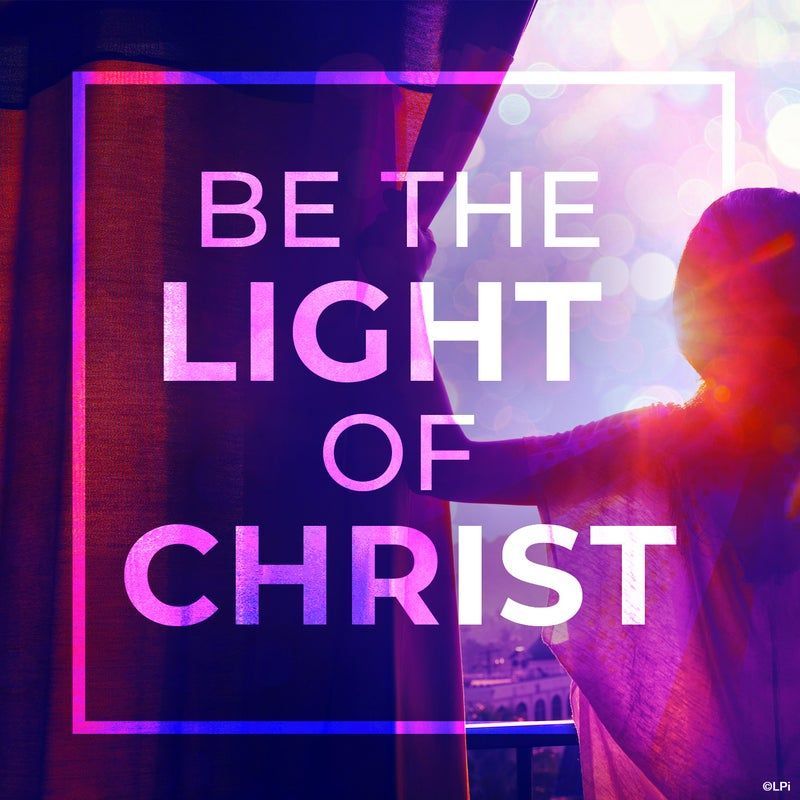
Isaiah prophesied: The people who walked in darkness have seen a great light; upon those who dwelt in the land of gloom a light has shone. (Is 9:1) John the Evangelist wrote: ...the light shines in the darkness, and the darkness has not overcome it…(Jn 1:5) The true light, which enlightens everyone, was coming into the world (Jn 1:9) And Jesus said: ...I am the light of the world. Whoever follows me will not walk in darkness, but will have the light of life…(Jn 8:12) Beginning with Isaiah’s prophecy of the Light of Emmanuel — God-with-us — some 2,800 years ago, through to Christ’s entry into this world of darkness in Bethlehem as the Child of Light, to his ministry of Light and Life, and racing through the millennia to us today throughout the world, to us here in St. Mary’s parish, to the family whose children were baptized at St. Mary’s this past weekend: The True Light of the World, the Dayspring from on high, the One Morning Star that never sets, the Word who existed in the beginning with God and who, from the beginning, was God, Jesus Christ the Light continually breaks into the darkness of our world and dark nights of our lives. At each Christmas, in the dark night of the world, we celebrate the daybreak of the Light of Christ coming into the world. At each Easter, we celebrate the breaking forth of the Light and Life of the Resurrected Christ from the darkness of the tomb of sin and death. And at each baptism, we recall and celebrate both, as we light the baptismal candle from the Paschal candle (that is, the Christ Candle) and say to the newly baptized, “Receive the Light of Christ.” We then give the parents and godparents, but frankly all of us , a solemn charge: This light is entrusted to you to be kept burning brightly. This child…has been enlightened by Christ. [They are] to walk always as a child of the light. We are to walk not only as children of God enlightened by Christ, but we are to walk also — each one of us — as bearers of Christ and His Light into the world. We can each bear a torch of the Christ Light as we walk with one another through the dark valleys of the night of each other’s lives, illuminating the darkened path for our sisters or brothers, walking with them as long as we can, until another bearer of Christ’s Light joins us to journey with them further. Never underestimate the brightness of Christ’s Light in the smallest of actions, a kind word or simple deed. In fact, St. Mother Teresa of Kolkata counselled that the smallest of our actions may be infused with the brightest light of love. She said: Don’t look for the big things, just do small things with great love…the smaller the thing, the greater must be our love. And never forget that a light appears as its brightest in the deepest dark of night. The Christ Light in the smallest of our actions may be the brightest light in the darkest part of the night of someone's life. My sisters and brothers, the Light of Christ has been entrusted to us to be kept burning brightly, not for ourselves alone, but for the life of the world. Let us walk with one another, sharing the Christ-Light entrusted to us with each other and with the world outside the walls of this Church!
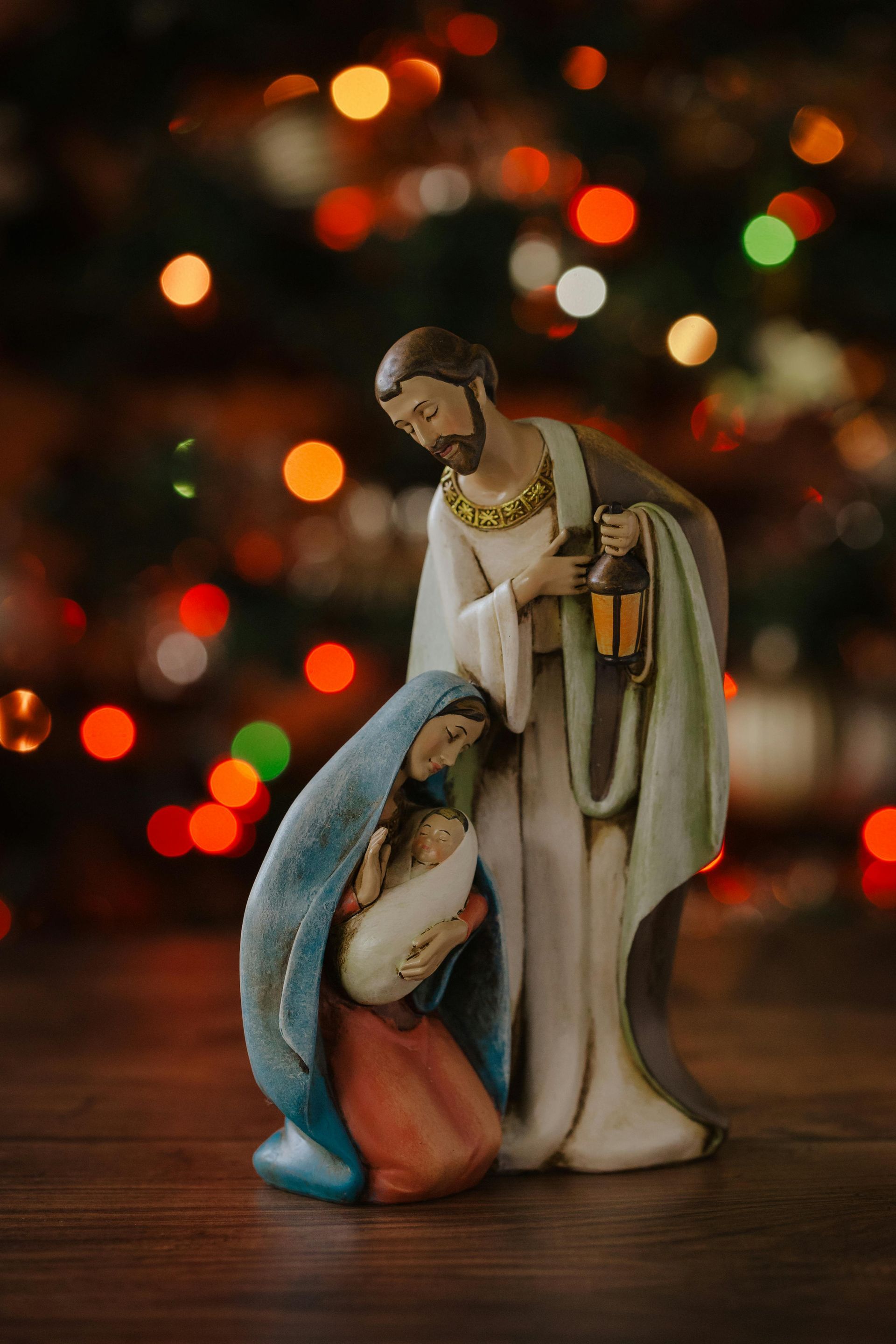
Two weeks ago, on the Solemnity of the Immaculate Conception, we heard the Gospel account of Mary receiving the news of her pregnancy from the Angel Gabriel. Today’s Gospel passage tells us the story of Joseph receiving the same news. It's not a stretch to imagine, knowing this is not his child, that he might have been filled with a range of emotions as this news settles in, with these emotions giving way to a pervasive feeling that his world — and Mary's — have been irreparably changed. Perhaps, maybe more than likely, he wrestled with this news as a weight-settled-in the-pit-of-his-stomach nameless opponent in fitful sleep until, in a dream, the Angel of the Lord appeared and named that opponent, saying, “Joseph, son of David, do not be afraid .” Fear — Joseph is wrestling with fear. Fear for himself. Fear for Mary. Fear of a changed and unknown future. Joseph's fear, and the comforting by the angel of the Lord, mirror Mary’s same fear and comforting by the Angel Gabriel when she received the same news. I don’t think it's a coincidence that the Church gives us bookend accounts of the Annunciation and this parallel comforting message from God to not be afraid twice in Advent, here in these days of waning light and nights of growing darkness. Fear is part of the human condition, and God’s continual assurance to not be afraid is a testament to God’s desire for us — to be free from the shackles of fear. The most common phrase throughout Scripture is, “Be not afraid.” When I was in formation to become a deacon, I was assigned to assist as a hospital chaplain at Albany Med for a few overnights with a deacon serving as the regular overnight chaplain. One of these nights came after a blistering hot day in August. As we began our shift that evening, we gathered in the pastoral care office at Albany Med to obtain the list of patients to visit, some requesting Communion and some simply requesting a visit from the chaplain. There was the name of a woman to visit; nothing noted other than a room number. As we approached the room where we were to find this woman, the deacon I was with remarked to me offhand, “This must be a pregnancy complication. The normal pregnancies are all on lower floors.” As we entered the dimly-lit room, I immediately sensed a pervasive weight in the room: things were not alright. Accentuating the atmosphere was the spectacular electrical storm raging outside that night, lightning filling the panoramic window of the maternity room. We were introduced to the woman on our list: a young mother, her husband, their new baby girl, their first child. Here in this room in Albany Med was a Holy Family. The new mother shared that she had complications in the pregnancy and that she had developed a massive blood clot and was going into surgery the following morning. The lightning bolts arcing across the sky were like the huge red dragon described in the Book of Revelation awaiting the woman to give birth to the child; each bolt was its tail, sweeping away the stars of the night sky. It seemed the dragon was raging at this Holy Family, and as evident on their faces, raging within this Holy Family. And the dragon’s name was Fear. When we told them that we had brought Communion and asked if they wanted to receive, they were grateful and responded they very much wanted to receive. It was clear at that moment that the Presence of Christ in the Eucharist was a gift of great consolation to them, as their fears gave way to tears of relief and release. They were not alone; Jesus, Emmanuel — God is with us — was with them in the midst of the storm in their life that night and calmed their sea of fear. God was with them, just like he was with Joseph and Mary those nights some two thousand-plus years ago when the Angels of the Lord said to both of them, “Do not be afraid.” God is with us. What are the dragon-storms of our lives threatening to devour us? Do we, like Joseph and Mary, need to hear God’s message, “Do not be afraid” ? Do we need to quiet the din of our lives in order to hear God’s message? Do we need to reconnect with the peaceful presence of God in our midst, accepting God’s message, and like Mary and Joseph, entrusting our fears to God, allowing Him to displace fear in the midst of our storms? Fear does not have the last word; Jesus Christ does, he who dispels the darkness. Emmanuel — God is with us. God is with us now , and God is faithfully with us forever .

Jesus Christ never leaves us without Hope. Recently I have become acquainted with a man who shared his story that, as a young man from an abusive and drug-addicted family, he found himself on the streets, homeless, fleeing the chaos of his home life. One Sunday morning he found himself, as a homeless person, sitting on a bench outside a Catholic church during Mass. As parishioners were coming out of the church after Mass, he encountered a couple who stopped, reached out and talked with him. Noticing the homeless man did not have a coat, the husband immediately gave him his coat before they went on their way. The homeless man found himself wondering — what made that couple different from all the others he had encountered in his walk as a homeless person? As time went on, he got into a stable situation, landed a job, got married and had a family of his own, and that question in his heart from that day led him to become a Catholic himself. Today he and his wife are discerning his call to a vocation to ordained ministry as a Deacon in the Church. Jesus Christ never leaves us without Hope. The scripture and Gospel passages today contain a lot of disconcerting, and perhaps even scary, imagery regarding the end times: blazing fires, destruction of the Temple, wars, insurrections, deceit, persecutions, and death. But notice how these prophecies conclude: ” But for you who fear my name, there will arise the sun of justice with its healing rays” “...but not a hair on your head will be destroyed. By your perseverance you will secure your lives." Jesus Christ never leaves us without Hope. How fitting that we should be reminded of Hope, about Hope in the midst of the tribulations of our lives and world, as we move towards the end of this liturgical year, the Jubilee Year of Hope . It is this same Hope that Pope Leo XIV draws our attention to on this Sunday, the World Day of the Poor in his message for the day, entitled “You are my Hope.” In this message Pope Leo instructs us on the relationship between the poor, ourselves, and Hope, and of our collective responsibility to Hope. Here is what Pope Leo writes: The poor are not a distraction for the Church, but our beloved brothers and sisters, for by their lives, their words and their wisdom, they put us in contact with the truth of the Gospel. [They] can be witnesses to a strong and steadfast hope, precisely because they embody it in the midst of uncertainty, poverty, instability and marginalization. They cannot rely on the security of power and possessions; … Their hope must necessarily be sought elsewhere. God took on their poverty in order to enrich us through their voices, their stories and their faces. Every form of poverty, without exception, calls us to experience the Gospel concretely and to offer effective signs of hope. (1) Pope Leo reminds us that in encountering the poor among us, we encounter hope in Christ the Servant who washes both our feet. In serving our poor brothers and sisters — poor in whatever means — serving them in acts of charity and kindness, we find ourselves in the presence of Christ who shows us true Hope, Faith and Charity. We too are fed , washed and healed while we do the same for our brothers and sisters. While we are fed at this table of Charity, Pope Leo reminds us that we have a responsibility to serve at it. Hope is born of faith, which nourishes and sustains it on the foundation of charity, the mother of all virtues. All of us need charity, here and now. Charity is not just a promise; it is a present reality to be embraced with joy and responsibility… to offer new signs of hope that will bear witness to Christian charity… (1) We are called to the responsibility of charity: it is not an optional thing! Each act of charity is an act of kindness, compassion, mercy. Sometimes they are big acts; and sometimes they are small acts of charity in support of a big act, like contributing time or goods to our food pantry or community Thanksgiving dinner, the Giving Tree or Angel Tree party. And sometimes they are small acts of reaching out, listening, or encouragement. We can all offer those acts of charity and all of us need that charity. Do not give into the temptation that even the simplest act of charity, of kindness, is not of great value! Giving into that temptation leads us to indifference and inaction, which Pope Leo teaches “robs our [brothers and sisters] of hope.” Kindness matters! Never underestimate that your kindness, your charity, can be a lifeline of hope and light in what might be a dark moment or period in another person's life. Each little act of charity is a stone which we build into the wall of a great temple of Hope, the cornerstone and master-builder of which is Christ himself. A temple of Hope built of living stones which beckons the world into communion with the One who is Eternal Hope, Light and Life. As Jesus Christ gives us Hope, let us persevere in acts of charity and kindness, despite the tribulations of all going on around us and in us, and share that Hope with one another. (1) Pope Leo XIV. Message of the Holy Father for the 9th World Day of the Poor: You are my Hope
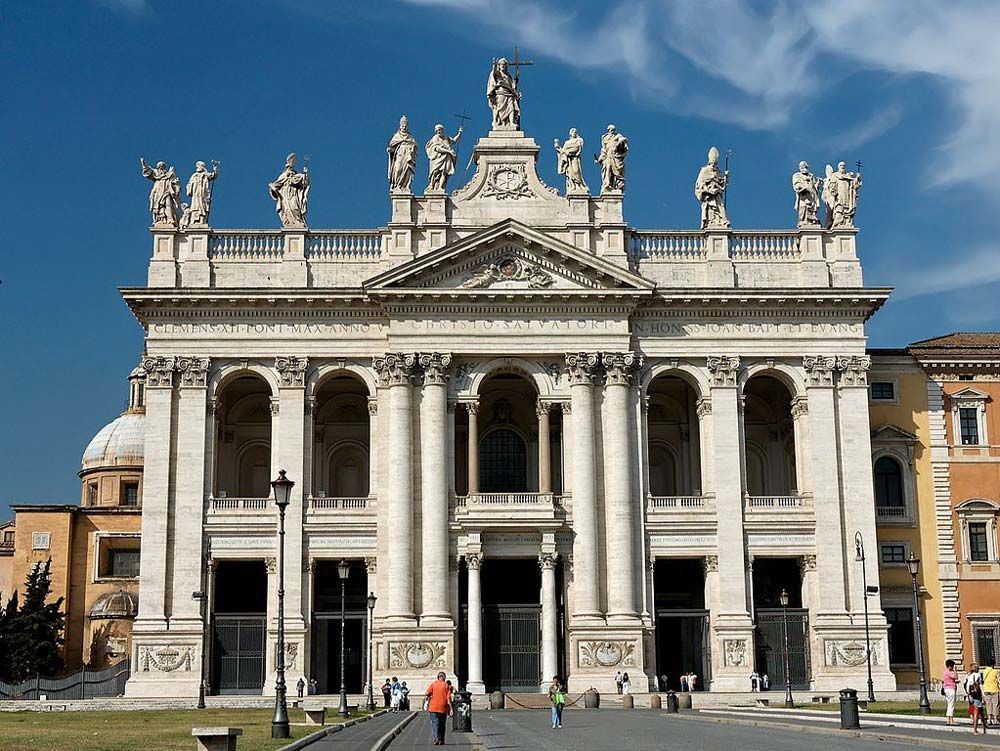
St. John Lateran is the cathedral of Rome. The church was built on land belonging to the Lateran family, thus the name St. John Lateran. Connected to the church is the baptistry, a large building used for baptisms. This is the oldest baptistry in Rome. The building dates to the days of Emperor Constantine and includes image of the battle of Milvin Bridge (312) when Constantine had a vision of the cross and later declared Christianity the official religion of the empire. In our first reading on this feast, we hear of the water flowing in the temple. Water is used in the sacrament of baptism. The baptistry at John Lateran is the oldest of its kind and speaks to us of the sacrament. Water speaks of the two elements of the sacrament of baptism, death and life. Those who are baptized die to their old way of life and participate in the resurrection of our Lord as they experience new life in this sacrament. In the waters of baptism, we are cleansed from the stain of original sin, and we are initiated into the body of Christ. The initiation into the body of Christ is the reason we baptize at the weekend liturgy. The person is being brought in as a member of the body of Christ, and the body of Christ gathers on the weekends at Mass. In the early church there were adults who were baptized. They would spend a period journeying with a sponsor and learning about the faith and at the Easter Vigil the bishop would come (in the early days there were no priests, just bishops), the community would gather, and the bishop would perform the rites of initiation, baptism, confirmation, and Eucharist. The OCIA (Order of Christian Initiation of Adults) recaptures this practice of the early church. Over the years it has become common to baptize infants. Canon Law, the law of the church, considers a child of 6 years to be an adult and thus is invited to enter the Order of Christian Initiation of Adults. Baptism is the first and most important sacrament. Each time we enter a church we bless ourselves with holy water to recall our baptism. In so many of our sacraments the church takes simple things and uses them to speak about aspects of our faith. Water has become a sign of the death of Christ and a sign of his resurrection. We use oil, a simple element, for anointing and healing in the sacrament of Baptism. The lit candle speaks of the light of Christ brought to the person in the sacrament and finally the cross is made on the mouth and ears of the person for hearing and speaking the word of God. Other sacraments use simple things to speak about a greater reality. We use bread and wine in the Mass; a simple gold ring is exchanged to speak about the love of God that unites a man and wife. Today we celebrate the dedication of an important space in our world church. The Church of St. John Lateran and its baptistry have allowed many to touch into the love our God for many years. We are thankful for this holy place.

Language scholars who have studied the origins of the word mammon in Hebrew and Aramaic have found clear association with words meaning wealth, riches, money, profit and possessions. But there is also evidence that one of the root words for mammon also means “that in which one trusts.” On all of our US currency — each coin and paper bill — is a simple (and, I suspect, often overlooked) phrase: “In God we trust.” This phrase was added during the Cold War to distinguish our currency, and nation, from that of the atheist Soviet Union. On each of our denominations of currency, both coins and paper bills, we have this simple reminder in whom we should be placing our trust in — God — and not what we should be placing it in: the fruit of our human activity, especially money. It is a poignant reminder to us today in light of the Gospel passage we hear and our current experience. This reminder begs us to ask two questions of ourselves and collectively as a country and society: Do we trust in God first? Always, everywhere, in everything? Or do we place our trust first in small-“g” god, or gods of human origin? In answering those questions, we might ask ourselves, what do our actions say about whether we place our trust first in God, or in humans? Where are we spending our time and treasure? This past month has brought us yet more tragic and traumatic reminders of our society’s misplaced trust. The recent spate of wounding and taking of innocent lives through gun violence in service of an ideology of retribution is just the most recent in a continuing human saga of such behavior, behavior that places trust in leading with human action to resolve differences, over our openness and trust in allowing God to lead us to a conversion of heart and to reconciliation. There is more that could be said about the responsible use of wealth in service to God. About detachment from ‘goods’ of this world — goods that God gives us out of love to draw us closer and more deeply into love with God, that we might revere God and God’s creation, but not take those goods in place of God. But in light of our continuing tragedies and the lack of reverence for human life, created by God in the image and likeness of God, of which they are clear evidence, the most important response we can offer is what St. Paul exhorts us to in his letter to Timothy, when he writes: First of all, I ask that supplications, prayers, petitions, and thanksgivings be offered for everyone, for kings and for all in authority, that we may lead a quiet and tranquil life in all devotion and dignity. This is good and pleasing to God our savior, who wills everyone to be saved and to come to knowledge of the truth. And so we will pray to God, as St Paul asks. Pray collectively for those who have suffered violence in all forms against humanity. We will pray collectively for those wounded, those who have lost their lives and their families. And then perhaps most difficult of all, we will pray for those who perpetrated this violence, and all who are tempted to perpetrate violence against humanity. We should be challenged in our prayers to pray for people we don’t want to pray for. We may find the heart that is converted is our own. In all these prayers we place our trust first and foremost in God, who desires to save us, and who “proves his love for us in that while we were yet sinners Christ died for us” (Rom 5:8). In this is our act of Faith. In this is our act of Hope.
Solemnity of Peter and Paul June 29, 2025 Peter and Paul are called the saints of Rome. Partly this is because, both died in the city. You may visit their burial places. The grave of St Peter is under the Basilica bearing his name and St. Paul is buried under the church of St. Paul outside the walls. (Being a Roman citizen Paul was buried outside the walls of Rome, while Peter was killed and buried in the city of Rome.) More about the churches later. Paul and Peter couldn’t be more different. It is said “God draws straight with crooked lines”. Why did God choose these men? A good question. It has been said “God doesn’t call the qualified, God qualifies the called.” Paul was a well-educated, Pharisee. An official of the temple. Paul spent his early career persecuting the followers of Jesus, until he met Jesus on the road to Damascus. Peter was a simple fisherman. He often said the wrong things and at times had flashes of insight, as in today’s gospel. Peter spent time with Jesus and denied knowing Jesus the night before his passion and death. Later Peter was asked 3 times “do you love me” by Jesus. Peter was the apostles to the Jews, while Paul was the apostle to the gentiles (the non-Jews). The Basilica of St. Peter is probably the most famous church in the city of Rome. For years it was thought that the church held the remains of St. Peter. This was confirmed in the 1940s when excavations took place to find more room to bury popes in the crypt of the building. Workers found and ancient cemetery under the church. Today we can take the tour, often given by seminarians from the North American College Seminary. Be sure to reserve the tour before you arrive in Rome. The tours are limited. At the end of the tour, you will come to the Marble box with the bones of St Peter in it. When the bones were tested, they were found to belong to a man from the first century. After Constantine made Catholicism the official faith of the republic, He constructed a simple church over the cemetery. Later it was added to and today it is the large church we know of as St Peter’s Basilica. You may visit the Constantine chapel in the crypt of the church to see where the first church was located. When I was on my sabbatical in Rome in 2008, I invited my family to visit me and I arranged to offer mass in the Clemintine chapel. After mass I noticed that one of the metal doors on the wall was open. We crawled in and went behind the altar to tough the marble box where the bones of St Peter were placed. What a thrill to be so close to the great saint’s remains. To visit the tomb of St Paul you need to travel outside of Rome to the church of St Paul outside the walls, most of the tour buses do not go here, so be carful which tour bus you take. The church is next to a monastery with a nice cloister garden. On the base of the dome are faces of the popes. Years ago, excavations took place, and the bones of St Paul were found in the base of the church. Today we honor the great saints of the early church. It is due to the preaching of St Paul that we the gentiles, non-Jews are here. A few months ago the successor to St. Peter was a man from our nation, Pope Leo the XIV. Let us give thanks for these great man and these great saints.
Corpus Christi June 22, 2025 Today we celebrate the feast of the body and blood of Christ, the eucharist. The second Vatican council reminds us that the eucharist is the source and summit of our faith. All we are, has its source in this celebration. At this celebration we are given the most ancient text about the last supper, the institution of the Eucharist. In Paul’s letter to the community of Corinth he tells us what took place at the night before Jesus suffered and died. In this account Jesus says to the disciple “do this in remembrance of me.” This remembrance is not simply calling to mind something that took place over 2000 years ago. The remembrance is about living the life Jesus has asked us to live. We live his example, Eucharist for us is about who we are and how we live. Each week we come to be fed with the word of God and the gift of the eucharist. This Sharing in the one bread and one cup becomes a moment of transformation. We are changed by this celebration. We go forth to live what we have experienced. In the gospel today, we hear of the feeding of the 5000 with the five loaves and 2 fishes, Barbara Reed askes an important question in this month’s issue of Give us this day, “Did Jesus actually multiply the loaves and fishes. Or was it a miracle in which everyone was prompted to share with others what they had brought? A better question is: How do we replicate the giving of our whole selves, body, mind and spirit, to the One who is the source of all nourishment so that we may be broken up in love for the life of the world?” What we do on the weekend does not end at the doors of the church building. We go forth to live the Eucharist. This is what deacon Myers meant when he wrote his book “Living the real presence”. After we come forward to receive communion we have a moment of silent prayer as we contemplate how this celebration will remain with us for the days to come. Then we stand for the post communion prayer, our home work. The prayer tells us how we live what we have received. This is why we stay after communion. We stay to pray as the body of Christ and to hear what we are do next. Here is the post communion prayer for this mass: Grant, O Lord, we pray that we may delight for all eternity in that share in your divine life, which is foreshadowed in the present age by our reception of your precious body and blood Who lives and reigns for ever and ever. Each time we come forward to receive the Eucharist we come as a community. We come as the body of Christ. The communion reception is a sign of unity. We come standing to receive. We are united in voice as we sing the communion hymn. We receive communion. We do not grab it we open our hands to receive. We are all receivers of this gift. All that is given to us if a gift and we receive this gift which is freely given by our God and then we go forward to give this gift all who we meet. The miracle of each mass is the gathering of the body of Christ and what we receive we freely give to others. The mass goes on and on throughout our days for our whole life.



